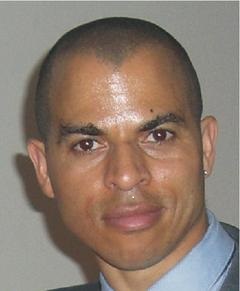
It may be all about the Benjamins in the US but, starting in 2018 in Canada, it will all about the Violas.
Viola Desmond, an African-Nova Scotian businesswoman who once refused to sit in a blacks-only section of a Nova Scotia movie theatre, will be the first woman other than a Queen or a Princess to appear on the front of a Canadian banknote. Desmond’s image will be featured on Canada’s $10 bill as of 2018. Federal Finance Minister, Bill Morneau, made the announcement Dec. 8, in Ottawa, after a nine-month election process.
Much is made of Desmond’s actions that day in the movie theatre – and with good reason. However, few mention how being a businesswoman impacted what she did.
First, she had the money to pay the more expensive seat in the whites-only section – but the ticket person refused to sell it to her. Second, if she did consider the possible consequences of her actions, there is one very major thing she didn’t have to worry about: that what she did might get her fired from her job. She didn’t have one to lose. She owned her own business and served black clients – most of whom probably would have applauded her choice. The freedom – the power – this gave her, cannot be understated.
Desmond is often been compared to Rosa Parks, the U.S. civil rights heroine who refused to give up her seat on the bus to a white passenger in Montgomery, Ala., in 1955.
But her sister, Wanda Robson, said her sister didn’t want to join any formal protest movements. She wanted to help her community by running her beauty salon and school. “My life’s mission is to be a hairdresser, to be the beauty consultant for all the black women, any black woman that comes to me, and to teach them, teach them to do what I do, so I can send them out in Nova Scotia or wherever they want to go and work with the black population,’” Ms. Robson said.
The Desmond School of Beauty Culture catered to women from Nova Scotia, New Brunswick and Quebec. Students were provided with the skills required to open their own businesses and provide jobs for other black women within their communities. Each year as many as fifteen women graduated from the school, all of whom had been denied admission to whites-only training schools. Desmond also started her own line of beauty products, Vi’s Beauty Products which she marketed and sold herself.
It’s difficult for anyone, any time to become a successful business person. However, for Desmond to become a successful black, businesswoman in Canada in the 30s and 40s was extraordinary. Unfortunately, in 2016, it still seems extraordinary for African-Canadians to become successful business people in Canada. Or maybe we’re just not hearing the stories.
The answer is probably a bit of both but the problem reflects a deeper issue: a lack of entrepreneurial culture among most African-Canadians (not an absence but a definite lack). This is evident from sites like BlackinCanada.com, dedicated to showcasing black excellence but without a Business category. The Entrepreneurs page has only three people on it, albeit very impressive ones including former Miss Canada and media entrepreneur, Juliette Powell. She founded Powell International Entertainment Inc (PIE Inc.), a media production and development company in 2001, and produced features with Nelson Mandela, Janet Jackson, Tina Turner and Prince Charles, to name a few.
Another indication may be the last public consultation by the Ontario Antiracism Directorate I recently attended. They were sought input from attendees on which systemic racism areas they should focus on. Many people of African descent spoke – but not one mentioned removing systemic barriers faced by existing, or potential, African-Canadian entrepreneurs. This is particularly striking when one considers “racism” versus “discrimination”. Racism is the feeling. Discrimination is using one’s power to put the feelings into action. One of the challenges faced by all groups targeted by discrimination is to lesson its possible impact on them. Owning one’s own business instead of having to ask others to hire you in theirs, is one way to do that.
Black Ottawa Scene does its part to support entrepreneurship by sharing stories like the appointment of Vanesa Kanu as Senior Vice President of Mitel Networks and interviews with local entrepreneurs like Suzanne Lavertu, founder of the School of Afro-Caribbean Dance. There are Ottawa groups dedicated to nurturing African-Canadian entrepreneurship like the Network of Black Business & Professional Women and the Ottawa Young Black Professionals.
However, if we are to have more Violas – and we need lots of them – we need to grow the entrepreneurial culture in the community. We need to get parents telling their children, “Remember when we told you to get a good education get a good job? Well, what we really meant was get a good education and create good jobs for other people.”
Robin Browne is an African-Canadian communications professional and father of two boys. He lives in Ottawa.
